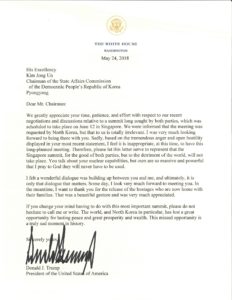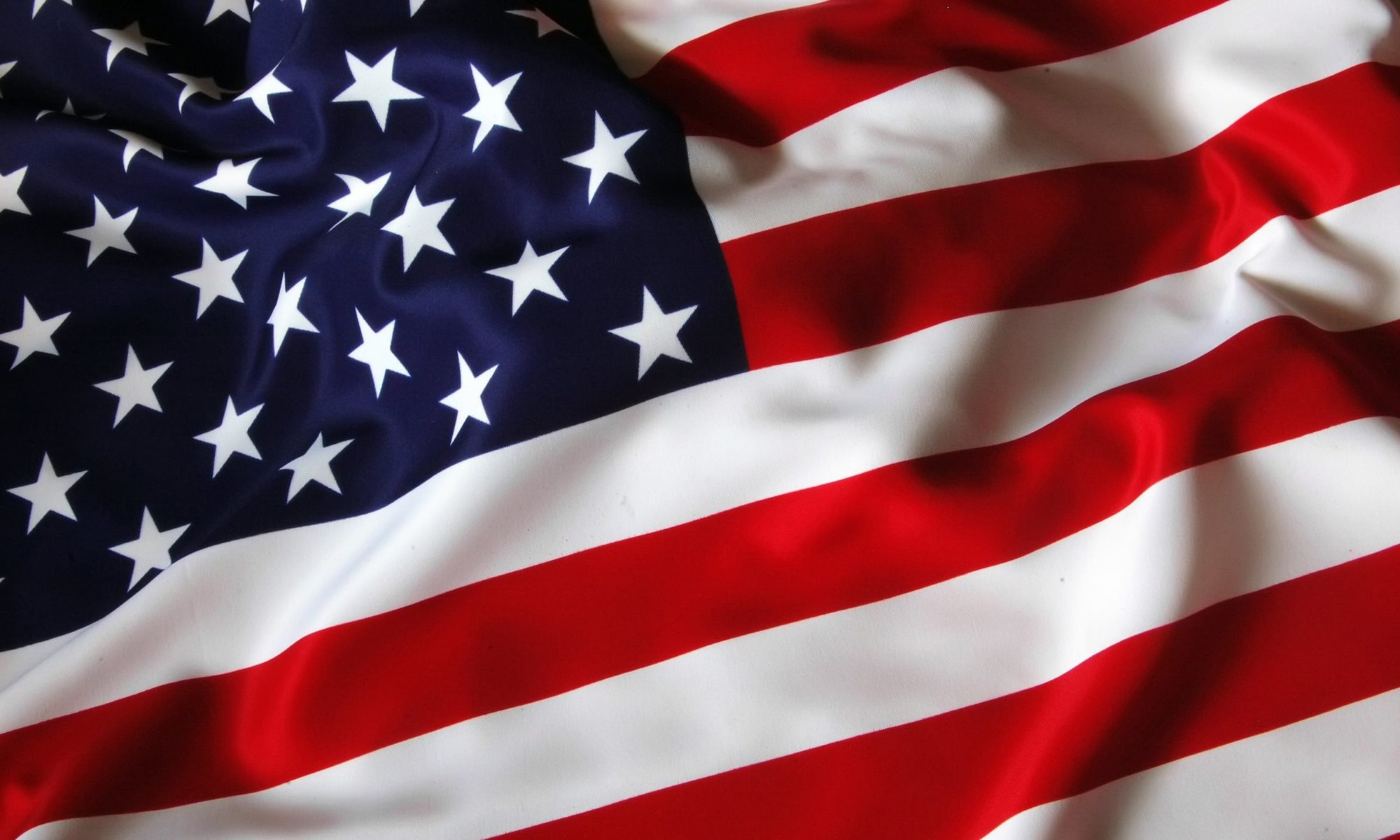On March 6, 2018, President Trump tweeted, “Possible progress being made in talks with North Korea. For the first time in many years, a serious effort is being made by all parties concerned. The World is watching and waiting! May be false hope, but the U.S. is ready to go hard in either direction!”
In March, South Korea’s national security advisor announced in Washington that Trump has accepted an invitation to meet with Kim Jong-un in Pyongyang by May.
On April 27, Kim Jong Un became the first leader in North Korean history to attend a summit in South Korea. The summit marked the first meeting between the heads of the Koreas in eleven years. The two pledged to convert the armistice that ended the hostilities of the Korean War into a formal peace treaty. They also confirmed the shared goal of achieving a nuclear-free Korean Peninsula.
A summit was scheduled between President Trump and North Korean dictator Kim Jong Un for June 12 in Singapore. President Trump announced on May 9 North Korea had freed three American prisoners, removing a bitter and emotional obstacle ahead of a planned meeting between him and the young leader of the nuclear-armed nation.
The release of the three prisoners, all American citizens of Korean descent, was a diplomatic victory for Mr. Trump and in some ways the most tangible gesture of sincerity shown by North Korea’s leader, Kim Jong-un, to improve relations with the United States after nearly seven decades of mutual antagonism.
However, Trump cancelled that meeting on May 24, citing “anger and hostility” in North Korea’s latest statements in a letter to Kim that came less than 12 hours after a North Korean official had personally disparaged Vice President Pence and warned of a nuclear showdown if the United States did not alter its tone ahead of the summit.  Threats out of Pyongyang had raised doubts about whether the summit would go forward.
Threats out of Pyongyang had raised doubts about whether the summit would go forward.
On June 1, President Trump reinstated the summit with North Korean leader Kim Jong Un, but he also sought to lower expectations over the potential for a quick denuclearization deal.
Trump made the announcement in impromptu remarks outside the South Portico of the White House after meeting for more than 90 minutes with a top Kim aide in the Oval Office. Kim Yong Chol, a vice chairman of North Korea’s Central Committee, delivered a personal letter from the young dictator, a gesture viewed as an effort to ease tensions.
At the summit, the two leaders signed a joint statement pledging to pursue lasting peace and complete denuclearization of the Korean Peninsula, although the declaration provides few details. They also committed to recovering the remains of U.S. soldiers who fought in the Korean War.
“I never said it goes in one meeting,” Trump told reporters. “I think it’s going to be a process. But the relationships are building, and that’s a very positive thing.”
Trump characterized the summit — the first between a sitting U.S. president and a North Korean leader — as “a beginning” and a “getting-to-know-you meeting-plus” in his effort to apply his unorthodox brand of personal diplomacy to a challenge that has vexed his predecessors.
“You’re talking about years of hostility; years of problems; years of, really, hatred between so many different nations,” Trump said. “But I think you’re going to have a very positive result in the end. Not from one meeting.”
